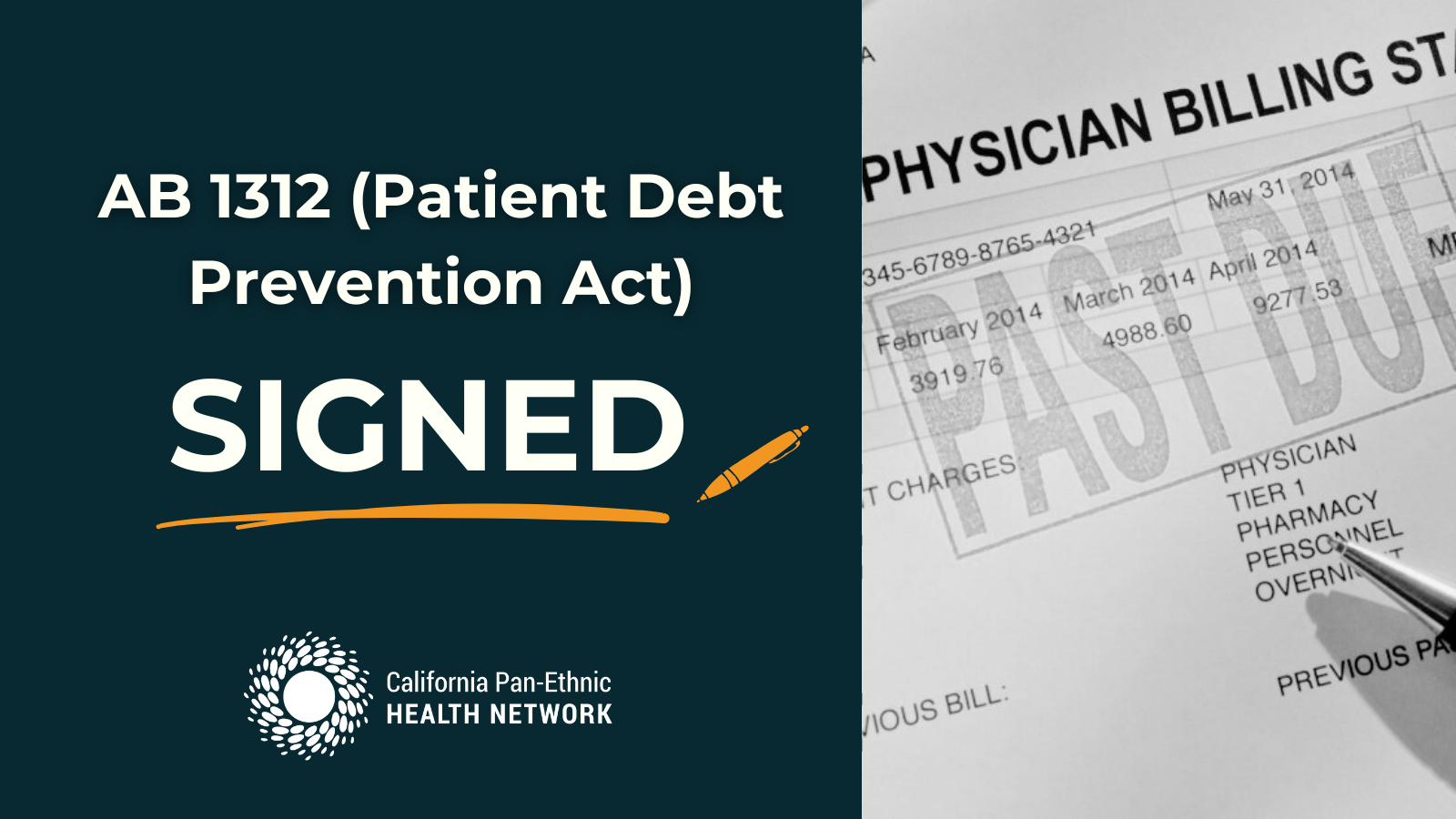
Status
On Tuesday, October 7th, Governor Newsom signed AB 1312, the Patient Debt Prevention Act. This landmark bill will protect patients and families from crushing medical debt after hospital stays, ensuring they are able to access existing hospital financial assistance programs rather than facing debt collectors for bills they shouldn’t owe. Authored by Asm. Pilar Schiavo (D-Chatsworth), the bill was backed by a coalition of health care consumer and health equity advocates including the California Pan-Ethnic Health Network (CPEHN), Health Access California, Leukemia and Lymphoma Society, and Rising Communities.
Background
More than one in three Californians reported medical debt in 2023, and the rate is even higher among Black, Latine, and Spanish-speaking Californians and those with low incomes. Many patients say they often struggle to afford basic needs, forcing them to skip or delay doctors’ appointments. According to state estimates, 3.4 million Californians could lose their health care coverage under the federal cuts, meaning even more people putting off care or leaving the hospital with unaffordable debt.
In adopting the Patient Debt Prevention Act, California will require all hospitals to screen patients who are uninsured, enrolled in Medi-Cal with cost-sharing, or enrolled in other means-tested programs, Covered California, or who may be experiencing homelessness. With the Patient Debt Prevention Act, California would also build on past consumer-protection legislation that prevents medical debt from being reported through credit bureaus.
The bill standardizes best practices for financial assistance already underway at more than 100 California hospitals including Adventist, Dignity Health, Kaiser, and Providence Hospitals. Several states including Oregon, Illinois, North Carolina, and Maryland already require hospitals to screen patients for financial assistance eligibility, and some require automatic discounts.
The Patient Debt Prevention Act is co-sponsored by the California Pan-Ethnic Health Network (CPEHN), Health Access California, Blood Cancer United, and Rising Communities.
